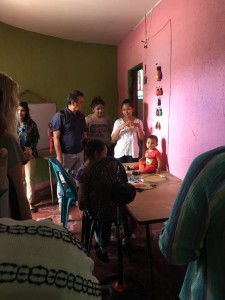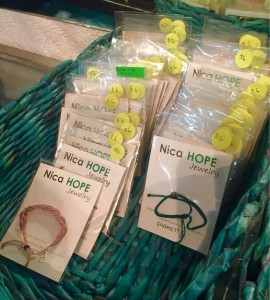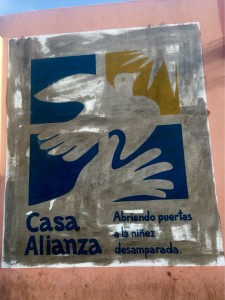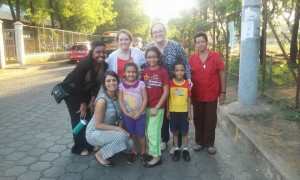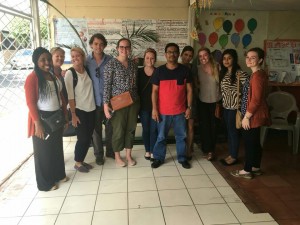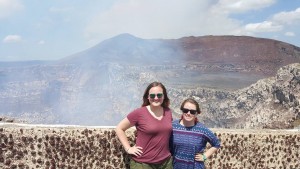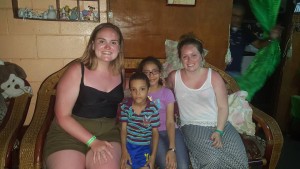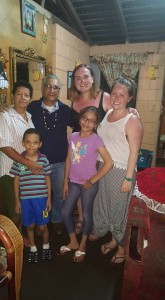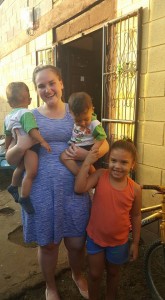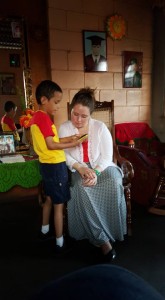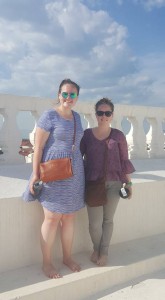This week in Managua, we had the opportunity to visit more organizations revolving around issues of poverty and adolescents. Kids in this community are living in more extreme poverty compared to other areas of Managua. Their families’ source of income often came from selling drugs or digging for recyclable materials in the dump to sell to a processing plant. The average income for these families was around $2 a day and most kids were lucky to get one full meal every day.
The first organization we visited was called NicaHOPE. This was an organization that offered before and after school programs and vocational and skills training. Younger students from pre-school age to 6th grade attended regular school in the morning and went to the NicaHOPE location for the afternoon. For the younger kids, NicaHOPE offered a place to continue learning, reading, a place to relax or get help with homework, a place to play, dance, and practice other skills, as well as receive other meal. Kids in middle and high school went to NicaHOPE in the mornings to learn computer skills or how to make jewelry then attended formal school in the afternoon.
Additionally, NicaHOPE offered a co-op with single mothers to create jewelry in order to help them provide for themselves and their children. The co-op often sold their jewelry, ornaments, and bracelets to American groups like us and other delegates.
The overarching purpose for NicaHOPE was to take young kids off the streets and prevent them from getting stuck in a cycle of selling drugs or picking garbage and recyclables. This organization provided a safe place for these kids and mothers to grow and learn skills, or even graduate from high school, in order to break the cycle and achieve better lives for themselves.
Similarly, the second organization, Casa Alianza, was a transitional home for abused, homeless, or drug addicted youth aged 13-17. The home provided therapeutic services and a safe place to live in order to overcome their experiences, break cycles of violence, and become productive members of their community. Through three stages involving adaptation, recovery, and reintegration, with the help and support of the families if possible, the residents were able to develop the skills necessary to have more success than they would have without the program. The first 30 days required the kids to stay at the home 24/7 and had to follow a strict schedule of planned activities. After that time period, they were able to attend school while they continued their scheduled activities. Therapeutic activities included things like yoga, sports, massages, crafts, etc. Other sources of rehabilitation involved natural medicines for mental health, group sessions, and eating lunch with a family member once a week. Additionslly, the kids were not allowed access to cell phones or internet in order to protect themselves from their abusers and to fully commit to an environment focused on recovery.
The organization only worked when each resident truly wanted to be there and knew they needed that kind of help. One example of a successful story was of a former resident who had always dreamed of being a chef. While at Casa Alianza, he learned the skills necessary to get a job as a chef in a nationally recognized hotel in Managua.
In general, both of these organizations provided us with insight to the lives and resources available to young kids living in especially underprivileged areas in Managua.
Thanks for reading our blog as we adventured through Nicaragua these past 2 weeks. Before we go back home, we wanted to share a little about ourselves for you to take with you.
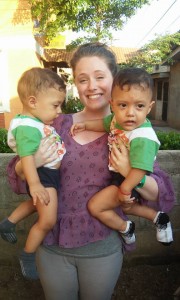
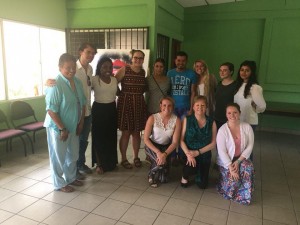
Anna –
Nicaragua has been such a unique experience for me. Choosing this program as my first study abroad trip, as well as my first time going out of the country, has truly opened my eyes more than I could have imagined. The most shocking thing to me about coming here is that the longer I stay, the more I realize we aren’t that different. The same groups face discrimination and danger when stepping outside their homes, women are a force to be reckoned with if given the right opportunity, poverty comes in all shapes and sizes, and the corruption and greed is endless. But so is hope and the willingness that people have to put efforts in for justice and human rights. And seeing the commitment here by so many different organizations and different kinds of people, all hoping to acheive the same thing one day, has shown me that we can never give up in our fight for equal rights and fair treatment. My favorite site we visited was Volcano Masaya. Standing on top of such an unpredictable part of nature made me feel the power and beauty our world holds. My favorite organizations we visited were the HIV/AIDS prevention group and Juanita, a transgender woman who told us her story and her battle with her identity in this kind of society.
I plan to graduate from OSU this December with a degree in Psychology and Women’s, Gender and Sexuality Studies. I hope to either receive a Masters in social work to work with youth in the Huntington’s Disease community who plan to test young or start my own business that connects rehabilitated pets in the shelter system with survivors of violence. We will just have to see what the future holds!
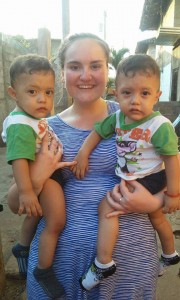

Emma – Unlike Anna, this was not my first study abroad experience nor was it my first time leaving the country. All of my experiences abroad have been very unique and immensely impactful and this trip was no different. I learned so much from the people and the culture of Nicaragua and I feel as though my world view has expanded accordingly. One of the most important things I will take away from this experience is the importance of community in making positive and lasting change. Whether it is through human rights advocacy or forming co-ops to receive fair wages, the importance of community can be seen in the everyday lives of the Nicaraguan people and I was so thankful to become a part of this community through our home stay with a family in Leon. Our family taught us so much and every conversation I had with them in my broken Spanish made me feel like I truly belonged. I have never had an experience like that in my life and I have never fallen in love with anyone that quickly. My time in Leon is something I will never forget because the bonds I formed with Xiomara, Victor, Ivan, Alexa, and Brittany are unlike anything I have ever known. I miss them so much and hope to see them again.
I have so many great memories in Nicaragua, although my time with my host family stands out, I will also hold onto my experience at the volcano and the market in Masaya, salsa dancing at the club in Leon, and all of the stories and testimonies I have heard in my time here. I will never forget the lessons I learned in Nicaragua and I will always cherish my community and be grateful for the things that I have.
Going forward, I will be traveling to Spain to hike the Camino de Santiago de Compostela where I hope to use my Spanish and meet some more incredible people. Then, I will be graduating in August with degrees in political science and international affairs before taking a gap year and applying to law school.

